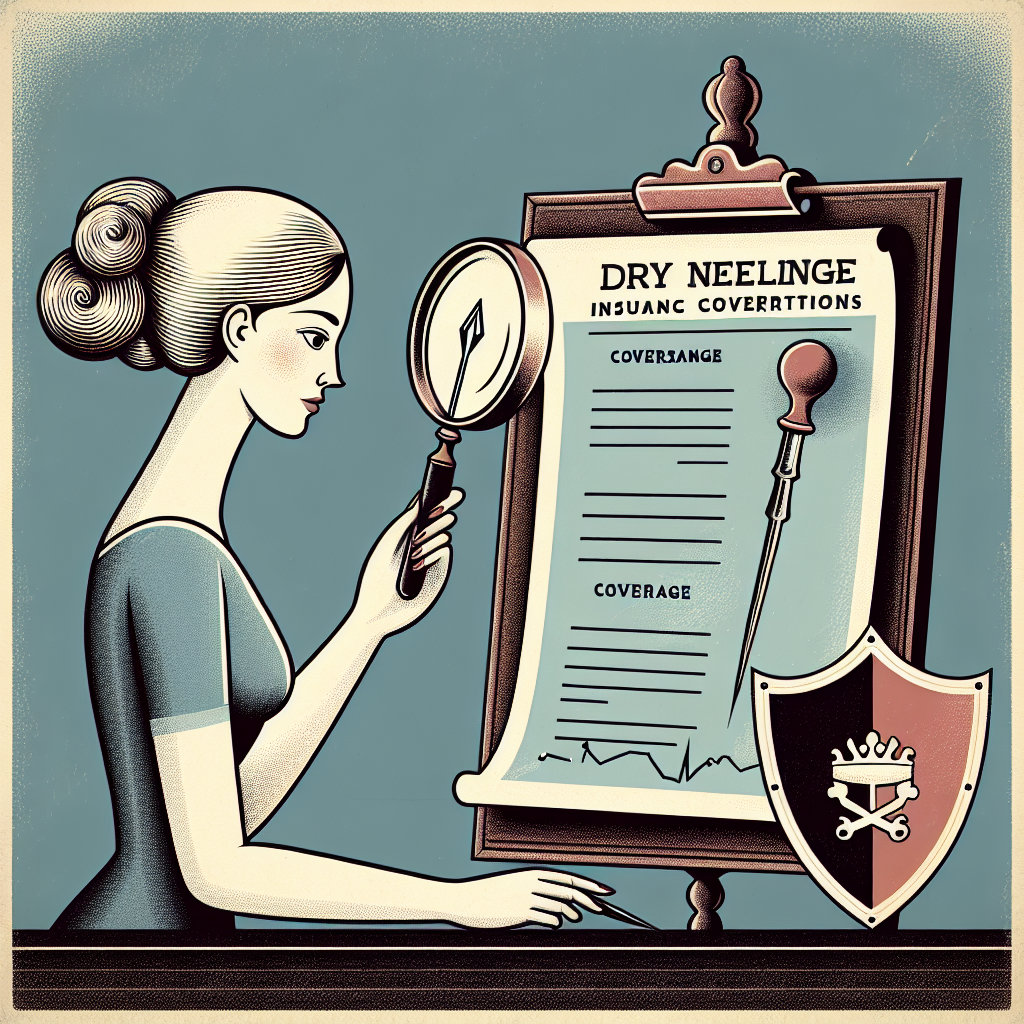Filed under Business Insurance on
Understanding Business License Insurance Essentials

Businesses, regardless of their size or industry, face a myriad of risks. From property damage to liability claims, there's no shortage of potential pitfalls that could hinder operations. Amidst these challenges, having the right protections in place is crucial. This is where understanding the essentials of business license insurance becomes vital. Informed decisions about insurance not only safeguard the business but also help in compliance with legal requirements.
What is Business License Insurance?
Business license insurance is a term that refers to various types of insurance coverages required or recommended for businesses to obtain or maintain a business license. It’s important to know that the specific requirements can vary by state, industry, and the nature of the business operations. Essentially, this insurance serves as a financial safety net, protecting the business and its owners from unforeseen liabilities and events.
Why Business License Insurance is Necessary
The primary reason business license insurance is important is to ensure compliance with local laws and regulations. Many jurisdictions mandate specific insurance coverages as a prerequisite for granting a business license. Failure to comply can result in penalties, fines, or even the revocation of the license. Moreover, these insurances protect against financial losses stemming from lawsuits, property damage, or other liabilities.
Types of Business License Insurance
Understanding the different types of business license insurance available helps in making informed decisions that align with the particular needs of a business. Here’s a closer look at some essential coverages:
General Liability Insurance
General liability insurance is often the backbone of any business insurance policy. Typically, it covers bodily injuries, property damage, and legal defense costs associated with claims against the business. This type of insurance is crucial for protecting against potential lawsuits stemming from accidents or negligence, making it a staple for most business operations.
Professional Liability Insurance
Also known as errors and omissions insurance, professional liability insurance is particularly crucial for service providers. It covers claims of negligence or failure to deliver services as promised. For businesses like consulting firms, real estate agencies, or law practices, this coverage is indispensable.
Workers’ Compensation Insurance
If a business has employees, securing workers’ compensation insurance is often a legal requirement. This insurance covers medical expenses and lost wages for workers who become injured or ill due to their job. It not only protects the workers but also shields the company from potential lawsuits stemming from workplace accidents.
Commercial Property Insurance
For businesses owning or leasing real estate space, commercial property insurance is essential. It protects the physical assets of a business against damage or loss due to events like fires, storms, or theft. This insurance extends to buildings, inventory, and equipment.
Business Interruption Insurance
Unexpected disruptions can pose significant challenges to ongoing operations. Business interruption insurance compensates for lost income and covers the expenses of relocating the business if necessary. It acts as a safety net, ensuring the sustainability of the business during unforeseen circumstances.
How to Choose the Right Business License Insurance
Selecting the right business license insurance requires careful consideration of several factors. Here's a breakdown of decision-making elements that can guide you:
Assess Your Risk
Begin by identifying the specific risks associated with your industry and operations. A thorough risk assessment helps determine which insurance policies are necessary and how much coverage you need. Consider factors such as business location, employee count, and the nature of your services.
Understand Legal Requirements
Familiarize yourself with local laws and industry regulations regarding required insurance coverages. Consulting with legal experts or insurance advisors can provide clarity and ensure compliance, avoiding potential penalties or legal issues.
Evaluate Different Insurance Providers
Compare policies from various insurers, focusing on coverage details, premiums, and claim processes. Look for providers with strong reputations, solid financial ratings, and positive customer feedback. It’s essential to opt for a provider who not only offers comprehensive coverage but also excellent customer support.
Consult with an Insurance Broker
Insurance brokers specialize in finding suitable policies for businesses. They can offer personalized advice, leveraging industry expertise to ensure you receive appropriate coverage. Brokers can be invaluable in navigating the complexities of business license insurance, helping tailor coverage to your unique needs.
Common Misconceptions About Business License Insurance
There are several myths and misunderstandings surrounding business license insurance that can lead to costly mistakes. Here are a few common misconceptions debunked:
- “Home-Based Businesses Don’t Need Insurance.” Even if you operate from home, you may still face risks that necessitate insurance. Homeowner’s policies often exclude home-based business operations, making specific business insurance crucial.
- “Small Businesses Don’t Need as Much Coverage.” Regardless of size, businesses are exposed to risks. Sometimes smaller businesses face higher vulnerabilities without the resources to handle financial setbacks, making adequate coverage even more critical.
- “I Can Cover Any Losses Out-of-Pocket.” While this might be feasible for minor incidents, significant claims can lead to financial ruin. Insurance ensures continuity and protects personal and business assets.
Expert Opinions on Business License Insurance
Insurance industry experts consistently emphasize the importance of adequate coverage. According to experts, many businesses underestimate their liability exposure, leaving them vulnerable to substantial financial losses. They recommend businesses regularly review and update their insurance policies, tailoring them to changing operations and emerging risks.
Furthermore, industry specialists suggest maintaining open communication with insurance providers to stay informed about new products, discounts, or changes in regulations that could affect coverage. This proactive approach helps businesses adapt and remain compliant, fortifying their protection over the long term.
Current Trends in Business License Insurance
As the business landscape evolves, so do the risks and corresponding insurance solutions. Here are a couple of emerging trends to consider:
Cyber Liability Insurance
With the increasing digitization of business operations, the risk of data breaches and cyberattacks has surged. Cyber liability insurance is becoming an essential coverage for protecting against financial losses resulting from cyber incidents. Many businesses integrate this insurance into their overall strategy to address modern risk environments.
Green Insurance Policies
Many insurers now offer policies that support environmentally-friendly practices. These policies provide incentives such as discounts for businesses implementing sustainable measures or using eco-friendly materials. Embracing green insurance not only benefits the environment but can also enhance brand reputation and client relations.
Conclusion
Understanding the essentials of business license insurance is foundational for protecting your business and ensuring compliance with legal obligations. With a myriad of coverage options available, it’s important to engage in thorough research and consult professionals when necessary. By doing so, businesses can secure the necessary protections, mitigate risks, and foster long-term success in a dynamic marketplace. From traditional coverages like general liability and workers’ compensation to emerging areas such as cyber liability, a comprehensive insurance strategy is an investment in the resilience and sustainability of your business.





